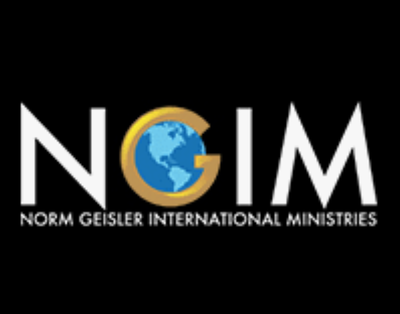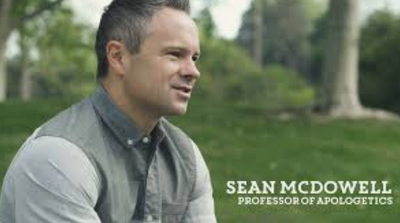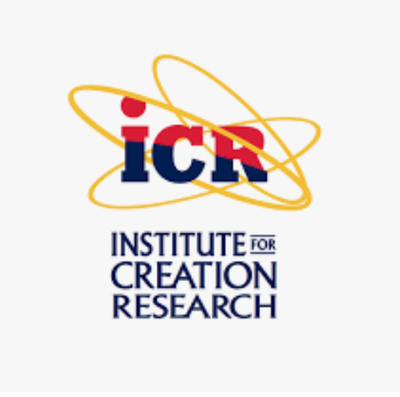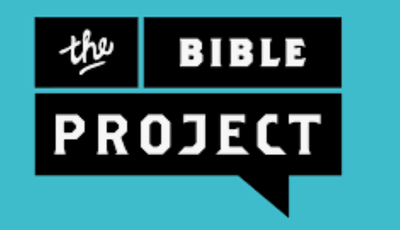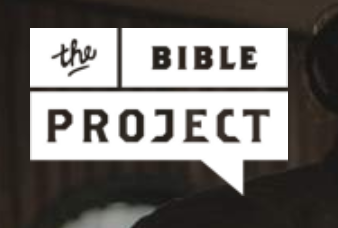APOLOGETICS
Is being a Christian intellectually reasonable?
Being a Christian is intellectually reasonable. In fact, the Christian worldview is more intellectually reasonable than atheism or any other worldview.
SESSION 1: Introductions: Is being a Christian intellectually reasonable?
SESSION 2: Intellectual consistency: Is there meaning to life?
Being a Christian is intellectually reasonable. In fact, the Christian worldview is more intellectually reasonable than atheism or any other worldview.
SESSION 1: Introductions: Is being a Christian intellectually reasonable?
SESSION 2: Intellectual consistency: Is there meaning to life?
How can I know what is true?
Truth is knowable, and those who sincerely seek to know the truth will find it.
SESSION 3: What is truth? (Part 1)
SESSION 4: What is truth? (Part 2)
Truth is knowable, and those who sincerely seek to know the truth will find it.
SESSION 3: What is truth? (Part 1)
SESSION 4: What is truth? (Part 2)
Does God exist? What is the evidence?
The scientific and philosophical evidence is overwhelming: God exists. Moreover, from the Cosmological Argument we conclude that God is infinite, personal (he makes choices), timeless, immaterial, omnipresent, and unimaginably powerful. From the Teleological Argument we conclude that God is the purposeful designer. From the Moral Argument we conclude that God is morally pure and the source of all that is good and right. From these scientific and philosophical arguments for the existence of God, then, we have already determined much of the character of God. These characteristics are also the same as that of the God described in the Bible. Moreover It must be noted that of all the world religions in existence today, only one can be true because they all contradict each other. (It is of course logically possible that none of them are true). From what we have determined already about the character of God, we have narrowed it down to one of the monotheistic religions (Islam, Judaism, or Christianity).
SESSION 5: The Cosmological Argument
SESSION 6: Leibniz' Contingency Argument
SESSION 7: The Teleological Argument
SESSION 8: The Moral Argument
SESSION 9: The Ontological Argument
The scientific and philosophical evidence is overwhelming: God exists. Moreover, from the Cosmological Argument we conclude that God is infinite, personal (he makes choices), timeless, immaterial, omnipresent, and unimaginably powerful. From the Teleological Argument we conclude that God is the purposeful designer. From the Moral Argument we conclude that God is morally pure and the source of all that is good and right. From these scientific and philosophical arguments for the existence of God, then, we have already determined much of the character of God. These characteristics are also the same as that of the God described in the Bible. Moreover It must be noted that of all the world religions in existence today, only one can be true because they all contradict each other. (It is of course logically possible that none of them are true). From what we have determined already about the character of God, we have narrowed it down to one of the monotheistic religions (Islam, Judaism, or Christianity).
SESSION 5: The Cosmological Argument
SESSION 6: Leibniz' Contingency Argument
SESSION 7: The Teleological Argument
SESSION 8: The Moral Argument
SESSION 9: The Ontological Argument
Is the Bible trustworthy? What is the evidence?
Once it is shown that God exists beyond a reasonable doubt, the question is: what is God like? And if God exists, it then follows that miracles are possible. If God were to perform miracles, His miracles would be in accordance with his character (as described above): they would be a demonstration of his power for a loving purpose. In light of God’s character, it would be reasonable that God would choose to communicate to people, his creation (demonstrating his purpose for creating mankind, and demonstrating his love). It would also be reasonable that God would communicate to people through written Scriptures. Thankfully, we can then test such scriptures to see if they are historically reliable, internally consistent, etc. When we apply these tests to the Bible, the Old and New Testaments, we find that the Bible uniquely passes these tests! The Bible is also uniquely authenticated by miracles that are historically attested (even outside of the Bible). Through textual criticism we can know beyond a reasonable doubt that the Scriptures we have today are not corrupted from the ones originally written down (Manuscript Integrity). We also have strong evidence from eyewitnesses. There is abundant historical and archaeological corroboration for the reliability of the Bible. The Bible is also amazingly internally consistent, and there is ample evidence for its divine origin from prophetic evidence alone.
SESSION 10: Miracles as evidence for revelation
SESSION 11: Manuscript Integrity
SESSION 12: Eyewitness Testimony
SESSION 13: Historical and Archaeological Corroboration
SESSION 14: Internal Consistency
SESSION 15: Prophetic Evidence
Once it is shown that God exists beyond a reasonable doubt, the question is: what is God like? And if God exists, it then follows that miracles are possible. If God were to perform miracles, His miracles would be in accordance with his character (as described above): they would be a demonstration of his power for a loving purpose. In light of God’s character, it would be reasonable that God would choose to communicate to people, his creation (demonstrating his purpose for creating mankind, and demonstrating his love). It would also be reasonable that God would communicate to people through written Scriptures. Thankfully, we can then test such scriptures to see if they are historically reliable, internally consistent, etc. When we apply these tests to the Bible, the Old and New Testaments, we find that the Bible uniquely passes these tests! The Bible is also uniquely authenticated by miracles that are historically attested (even outside of the Bible). Through textual criticism we can know beyond a reasonable doubt that the Scriptures we have today are not corrupted from the ones originally written down (Manuscript Integrity). We also have strong evidence from eyewitnesses. There is abundant historical and archaeological corroboration for the reliability of the Bible. The Bible is also amazingly internally consistent, and there is ample evidence for its divine origin from prophetic evidence alone.
SESSION 10: Miracles as evidence for revelation
SESSION 11: Manuscript Integrity
SESSION 12: Eyewitness Testimony
SESSION 13: Historical and Archaeological Corroboration
SESSION 14: Internal Consistency
SESSION 15: Prophetic Evidence
Is Jesus God? Did he die and rise again? What is the evidence?
After accepting the Bible as a historically reliable text, its most important claim of all can be tested: the death and resurrection of Jesus Christ. Again, there is ample evidence that Jesus Christ did, in fact, die and rise again. If Jesus really did die and rise again, this extraordinary miracle authenticates his claim to be God.
SESSION 16: Evidence for the Historicity of the Resurrection of Christ
SESSION 17: Jesus is God
After accepting the Bible as a historically reliable text, its most important claim of all can be tested: the death and resurrection of Jesus Christ. Again, there is ample evidence that Jesus Christ did, in fact, die and rise again. If Jesus really did die and rise again, this extraordinary miracle authenticates his claim to be God.
SESSION 16: Evidence for the Historicity of the Resurrection of Christ
SESSION 17: Jesus is God
Is the Bible God's Word? What is the evidence?
If Jesus is God, then he must have been telling the truth when he consistently affirmed that the Bible is God's Word. It is therefore true, beyond a reasonable doubt, that Jesus is God in the flesh, the Bible is God’s Word, and Christianity is true.
SESSION 18: Jesus (who is God) taught that the Bible is God's Word
If Jesus is God, then he must have been telling the truth when he consistently affirmed that the Bible is God's Word. It is therefore true, beyond a reasonable doubt, that Jesus is God in the flesh, the Bible is God’s Word, and Christianity is true.
SESSION 18: Jesus (who is God) taught that the Bible is God's Word
Conclusion: How then shall we live?
The Christian worldview is a very intellectually satisfying worldview. Christians are convinced that it is the most intellectually satisfying worldview. Christians are also convinced that if these things are true (Jesus is God and the Bible is God’s Word), then real life is found in knowing God and seeking Him with passion and commitment. The Christian faith, then, is not just an intellectual agreement with facts; it is a complete surrender to a God who loves us and gave himself for us. It is the intellectual and volitional trust in the reality that God truly does love me.
SESSION 19: Faith works
The Christian worldview is a very intellectually satisfying worldview. Christians are convinced that it is the most intellectually satisfying worldview. Christians are also convinced that if these things are true (Jesus is God and the Bible is God’s Word), then real life is found in knowing God and seeking Him with passion and commitment. The Christian faith, then, is not just an intellectual agreement with facts; it is a complete surrender to a God who loves us and gave himself for us. It is the intellectual and volitional trust in the reality that God truly does love me.
SESSION 19: Faith works
Appendix: Cults and other religions
In this session we briefly discuss other major cults and world religions, showing that they are false.
SESSION 20: Cults and other religions are false.
In this session we briefly discuss other major cults and world religions, showing that they are false.
SESSION 20: Cults and other religions are false.
Additional Apologetics Sessions
Science & the Bible
SESSION A1: Science & the Bible Introduction
SESSION A2: Evolution: Is Macroevolution Consistent with the Evidence?
SESSION A3: Intelligent Design: Is Intelligent Design Consistent with the Evidence?
SESSION A4: The Flood Part 1: An Historical Event?
SESSION A5: The Flood Part 2: Is the Fossil Record Consistent with the Flood?
SESSION A6: Genetics and Human History Part 1
SESSION A7: Genetics and Human History Part 2
SESSION A8: Age of the Earth
SESSION A9: Age of the Earth and Dating Methods
SESSION A10: More Resources for Further Study

